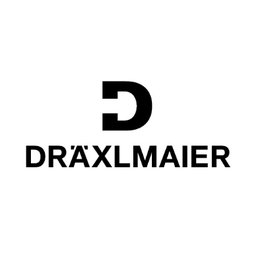Job Opportunities in Romania

October 16, 2024
Bosch Romania
Cluj-Napoca
OTHER
Computer Vision Engineer, Mobility Aftermarket Technology
Company Description
Since its establishment in 2013, Bosch Engineering Center Cluj plays an essential role in the current transformation of the mobility sector. Through its extensive expertise in software, hardware andamp; mechanical engineering, reliability engineering, as well as sales planning, the center contributes to the development of innovative products and services based on artificial intelligence (AI) applied in the fields of automated driving, electric and connected mobility. Thanks to the diverse professional and personal development opportunities, flexible working conditions, modern offices and laboratories in Cluj-Napoca, Jucu, Bucharest and Sibiu, we are one of the most desired employers among engineers and IT professionals in Romania.
Our promise to our colleagues is rock-solid: we grow together, we enjoy our work, and inspire each other. Join us and see the difference. Work #Like ABosch
Qualifications
Additional Information
#Like ABosch Benefits:
Your work-life balance is valuable to us, so we offer you:
On top of these, we are offering:
We live by our values, have an open feedback culture and there is plenty of room for innovative ideas. All because a team is only as valuable as its members.
Job Description
We are currently looking for aand#xa0;Computer Vision Engineer for Mobility Aftermarket technology development to work within our team.
We are a team of engineers that harness the power of artificial intelligence, video-based perception and deep learning to create industry leading automated driving and mobility aftermarket technology. We develop state-of-the-art 3D computer vision algorithms, art neural networks based on video sensors with the focus on scene perception and understanding in andamp; out of the car, transforming the camera-based 3D perception technologies into valuable tools andamp; intelligent products for the overall automotive field.
In your role you will:
We are currently looking for aand#xa0;Computer Vision Engineer for Mobility Aftermarket technology development to work within our team.
We are a team of engineers that harness the power of artificial intelligence, video-based perception and deep learning to create industry leading automated driving and mobility aftermarket technology. We develop state-of-the-art 3D computer vision algorithms, art neural networks based on video sensors with the focus on scene perception and understanding in andamp; out of the car, transforming the camera-based 3D perception technologies into valuable tools andamp; intelligent products for the overall automotive field.
In your role you will:
Since its establishment in 2013, Bosch Engineering Center Cluj plays an essential role in the current transformation of the mobility sector. Through its extensive expertise in software, hardware andamp; mechanical engineering, reliability engineering, as well as sales planning, the center contributes to the development of innovative products and services based on artificial intelligence (AI) applied in the fields of automated driving, electric and connected mobility. Thanks to the diverse professional and personal development opportunities, flexible working conditions, modern offices and laboratories in Cluj-Napoca, Jucu, Bucharest and Sibiu, we are one of the most desired employers among engineers and IT professionals in Romania.
Our promise to our colleagues is rock-solid: we grow together, we enjoy our work, and inspire each other. Join us and see the difference. Work #Like ABosch
Qualifications
- You have working or academic experience in the computer vision field.
- You have a university degree in computer science, automation, electronics and telecommunications, informatics, mathematics or comparable;
- You have a thorough understanding of computer vision / deep learning / machine learning (i.e., building blocks, mathematics, and intuition behind), algorithms, data structures and software design.
- You have experience with Python, object oriented programming or with deep learning training frameworks (Tensor Flow, Py Torch, etc.);
- You enjoy working on both research andamp; development related activities;
- You are motivatedand#xa0;and committed to get involved, learn and contribute to the development of cutting-edge technologies in collaboration with a global network of experts;
- You have good communication, strong analytical skills, you are team oriented, have initiative, perseverance, and attention to details;
- You are self-organized and able to estimate, prioritize and schedule own tasks
- You are result and quality oriented;
Additional Information
#Like ABosch Benefits:
Your work-life balance is valuable to us, so we offer you:
- 25 Days of annual leave, because work-life balance is essential to us;and#xa0; and#xa0;
- Flexible working hours, but if you want to work from somewhere else, feel free, ourand#xa0;Home Officeand#xa0;program helps you do that.
- Medical subscription;
- Accident insurance;
- Sport activities and well-being initiatives.
- Technical and soft skills trainings;
- Access to e-learning platforms;
- Local and Global career development programs;
- Opportunity to attend conferences;
- Bookster subscription.
On top of these, we are offering:
- A monthly budget which can be used for several different services on an online benefit platform;
- Annual bonus;
- Lunch discounts.
We live by our values, have an open feedback culture and there is plenty of room for innovative ideas. All because a team is only as valuable as its members.
Job Description
We are currently looking for aand#xa0;Computer Vision Engineer for Mobility Aftermarket technology development to work within our team.
We are a team of engineers that harness the power of artificial intelligence, video-based perception and deep learning to create industry leading automated driving and mobility aftermarket technology. We develop state-of-the-art 3D computer vision algorithms, art neural networks based on video sensors with the focus on scene perception and understanding in andamp; out of the car, transforming the camera-based 3D perception technologies into valuable tools andamp; intelligent products for the overall automotive field.
In your role you will:
- Develop computer vision-based algorithms for mobility aftermarket technology (e.g. precise sensors calibration in auto workshops);
- Design, develop and optimize algorithms and software for single and for multi-camera video systems using a variety of state-of-the art methods (deep learning, structure from motion, optical flow, 3D reconstruction, clustering, segmentation, objects tracking, visual odometry, numerical optimization techniques, projective geometry, etc.);
- Create, adapt and train deep learning models that detect / classify / segment entities of interest;
- Be responsible for optimizing and deploying trained deep learning models and 3D perception algorithms to dedicated hardware devices;
- Evaluate and validate the performance of the models based on ground truth and reference sensors data, and experiment ways to improve on scenarios with undesired behavior;
- Evaluate and tune the algorithmic performance on large datasets for reaching release-ready systems performance;
- Python, (embedded) C/C++
- 3D
- Tensorflow, Keras, Pytorch
- Parallel computing frameworks (NEON, DSPs, Open CL, CUDA, ...)
- Linux
- GIT, Jira, Bitbucket, Docker
- Jenkins, CMake or equivalents
We are currently looking for aand#xa0;Computer Vision Engineer for Mobility Aftermarket technology development to work within our team.
We are a team of engineers that harness the power of artificial intelligence, video-based perception and deep learning to create industry leading automated driving and mobility aftermarket technology. We develop state-of-the-art 3D computer vision algorithms, art neural networks based on video sensors with the focus on scene perception and understanding in andamp; out of the car, transforming the camera-based 3D perception technologies into valuable tools andamp; intelligent products for the overall automotive field.
In your role you will:
- Develop computer vision-based algorithms for mobility aftermarket technology (e.g. precise sensors calibration in auto workshops);
- Design, develop and optimize algorithms and software for single and for multi-camera video systems using a variety of state-of-the art methods (deep learning, structure from motion, optical flow, 3D reconstruction, clustering, segmentation, objects tracking, visual odometry, numerical optimization techniques, projective geometry, etc.);
- Create, adapt and train deep learning models that detect / classify / segment entities of interest;
- Be responsible for optimizing and deploying trained deep learning models and 3D perception algorithms to dedicated hardware devices;
- Evaluate and validate the performance of the models based on ground truth and reference sensors data, and experiment ways to improve on scenarios with undesired behavior;
- Evaluate and tune the algorithmic performance on large datasets for reaching release-ready systems performance;
- Python, (embedded) C/C++
- 3D
- Tensorflow, Keras, Pytorch
- Parallel computing frameworks (NEON, DSPs, Open CL, CUDA, ...)
- Linux
- GIT, Jira, Bitbucket, Docker
- Jenkins, CMake or equivalents
We regret to inform you that this job opportunity is no longer available
Latest Job Opportunities



October 19, 2024
Genpact
Customer Service - Senior Process Associate-Spanish-Remote EMEA.
Cluj-Napoca
OTHER
View Details
October 19, 2024
Genpact
Customer Service - Senior Process Associate-French-Remote EMEA.
Cluj-Napoca
OTHER
View Details
October 19, 2024
Genpact
Customer Service - Senior Process Associate-Italian-Remote EMEA.
Cluj-Napoca
OTHER
View DetailsSimilar Jobs

April 29, 2024
Amazon Development Center (Romania) S.R.L.
Software Development Engineer - Ring Cloud Computer Vision, Ring
Iasi
OTHER
View Details
October 8, 2024
Adobe
Senior Computer Scientist – Frontend Architecture & Optimization
București
OTHER
View Details
March 25, 2024
Magna Electronics Romania
Computer Vision Algorithm Developer for Thermal
Iasi
View Details

September 16, 2024
wenglor sensoric
Application Engineer (m/f/d) - Machine Vision
Sibiu
View Details
New Jobs from This Company




